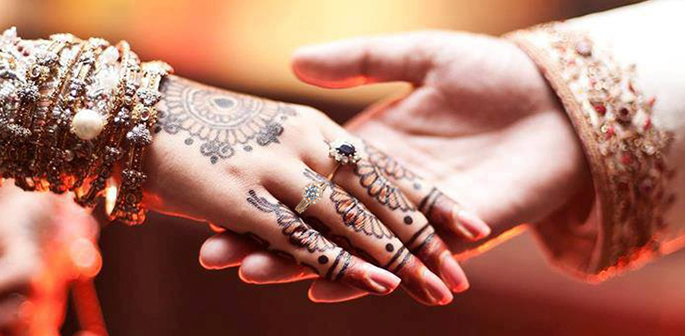
What do India’s Youths want? Marry Within Their Own Caste
In the recent sample survey of youth released in the Economic Times, it was found that the Indian youths (between the age group of 18-35) are both conservatives and liberals. The line between conservatives and liberals is not clearly drawn. People can be conservatives on some issues and liberal on other issues. The line is quite blurred.
It is also true that at one time either of the frames can be activated and not the both: either conservative or liberal. We are concerned about caste which is the true reflection of conservatism in the Indian context. Judged on this issue,
92 percent of the youths surveyed married within their own caste.
This reflects the inherent conservatism in the Indian society. Indian society is not liberal judged by this standard and the fact that youths in India at large have their minds inflexible when it comes to marriage reflects dark future for our country.
Indian youths constitute about 400 million people, a large humanity to really be serious about by planners. A national youth policy is drawn focussing on the youths. But are we to make youth only slaves to economics and politics?
Are we not responsible to our youths to make them socially sensitive and liberals?
Of all the areas that affect a nation, social is the most important. The more and more people break barriers between themselves; the country becomes stronger and stronger. The fact that intra-caste marriages are prominent, actually norm in the society, make it clear that our youths are biased and only thinking on the caste lines.
There is a need for education and social education is the most important. The longer purpose of the education is not technical, but social and it must promote true democracy. But the Indian educational system is being coloured in the saffron colour.
The educational inputs determine the future of the country. The more conservative is the educational system; more conservatives will be the citizens. An attitude of love and respect for fellow human beings must be cultivated and state should all the means to promote fraternity. It is not enough to say that All Indians are brothers and sisters, but it is important to train minds in thinking this way.
The informal education in terms of myths, Hindu religion, and TV serials promote anti-India views when it shows that not all are brothers and sisters, but that there is a mythical division in the society in which the people must confine themselves and that confinement takes place in the form of marriage system.
To be liberal in India means to believe in the constitution that promote liberty, equality, and fraternity, and to be conservative in India means believing in the religious system that promotes caste, communalism, and baseless chauvinism. It is clear that Young India is more steeped in conservatives than in liberalism.
The mass media had failed to destroy barriers between the people. It is sad.
We cannot afford to be governed by ancient decrees in the modern world. Indians largely take their caste with them when they migrate to other parts of the world. This pattern is reflected in the organisations they form and pubs they visit. The only way to make this country liberal is to throw away the religion that teaches them to be conservative. There is still a glimmer of hope that the youths are divided on the ban on beef. It is time to leave people alone with their food habits.
If the survey is to be taken as a lesson which claims that only 2 percent youths are inclined to the Dalit political parties, then there is a long way to go to make them attract towards Dalit politics and it will need much bigger overhaul of the Dalit politics, perhaps the entire Dalit movement that will become accessible to them.
Other results from the survey that should make our head bow down in shame are that 51% of married men say that women should not work after marriage, 54% of married women disagree with it and say women should work. The ghare-baire notions of women’s freedom are still prevalent. While only 37% of youth agree, fully or somewhat, that girls should not wear jeans, and 38% agree that higher education is more important for boys than girls, it becomes harder for women inside homes and in marriages: 55% of men agree, fully or somewhat, that women should listen to their husbands, while 46% women disagree with it. [Source]
Author – Mangesh Dahiwale


+ There are no comments
Add yours